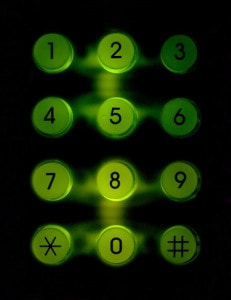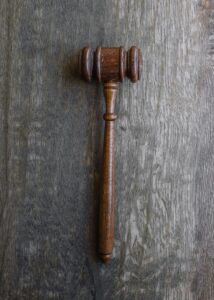November 21, 2016
 Hooters of America, LLC (“Hooters”) recently lost a challenge to a federal lawsuit brought in connection with allegations that its text message advertisements violated the Telephone Consumer Protection Act (“TCPA”). The court rejected Hooters’ argument that the plaintiff lacked standing to bring the TCPA lawsuit, an argument premised on the U.S. Supreme Court’s (“SCOTUS”) recent decision in Spokeo, Inc. v. Robins.
Hooters of America, LLC (“Hooters”) recently lost a challenge to a federal lawsuit brought in connection with allegations that its text message advertisements violated the Telephone Consumer Protection Act (“TCPA”). The court rejected Hooters’ argument that the plaintiff lacked standing to bring the TCPA lawsuit, an argument premised on the U.S. Supreme Court’s (“SCOTUS”) recent decision in Spokeo, Inc. v. Robins.
Why did the Court reject the Spokeo challenge?
Hooters’ argued that the plaintiff did not have standing to bring a TCPA claim because he had not suffered an injury in fact, a constitutional threshold requirement reinforced by the Spokeo decision. According to Hooters’ argument, Plaintiff merely alleged that he had been the victim of a procedural violation of the TCPA namely, the receipt of a single text message advertisement after withdrawal of consent. The Court rejected this argument, however, reasoning that Congress has determined that receipt of even one call to one’s cellphone without consent is a sufficiently particularized injury for standing purposes, specifically noting that an invasion of privacy or any time wasted reading the text message is an adequately concrete injury.
A distinct split in authority is taking root in the aftermath of the Spokeo decision, particularly within the TCPA lawsuit space. Some courts have found that simply alleging receipt of calls in violation of the TCPA, without more, is insufficient to survive a Spokeo challenge. However, others, like the court that ruled against Hooters, have been inclined to find that receipt of such a text message is precisely the injury that Congress intended to remedy through passage of the TCPA, and thus sufficient for Spokeo purposes. It is, nevertheless, apparent that the relative strength of Spokeo-based challenges to TCPA claims will continue to remain unsettled and in flux until such time as SCOTUS is presented with an opportunity to revisit the issue.
Protect Your Business Against a TCPA Lawsuit
We have written extensively about increased interest, from regulators and class action attorneys alike, in telemarketing calls and text messages placed to cell phones. Having lost its Spokeo-based challenge, and a related challenge to the sufficiency of the class claims at issue, Hooters could be exposed to hundreds of millions of dollars in liability. This should serve to reinforce the notion that, in today’s regulatory environment, it is imperative to have telemarketing practices and procedures examined by experienced counsel in order to avoid potentially disastrous consequences in the event that a class action plaintiff or federal regulator brings a TCPA lawsuit for alleged telemarketing-related violations.
If you are interested in learning more about this topic, need to review your telemarketing practices and procedures or if you are facing an investigation from the FCC or other regulatory agency, please e-mail us at info@kleinmoynihan.com, or call us at (212) 246-0900.
The material contained herein is provided for information purposes only and is not legal advice, nor is it a substitute for obtaining legal advice from an attorney. Each situation is unique, and you should not act or rely on any information contained herein without seeking the advice of an experienced attorney.
Attorney Advertising
Federal Court Revises Suspended Judgment Against Text Message Marketing Company Principal
Trump’s Campaign Hit with TCPA Lawsuits for Text Message Marketing
FCC to Rigorously Enforce TCPA Political Robocall Text Message Regulations



